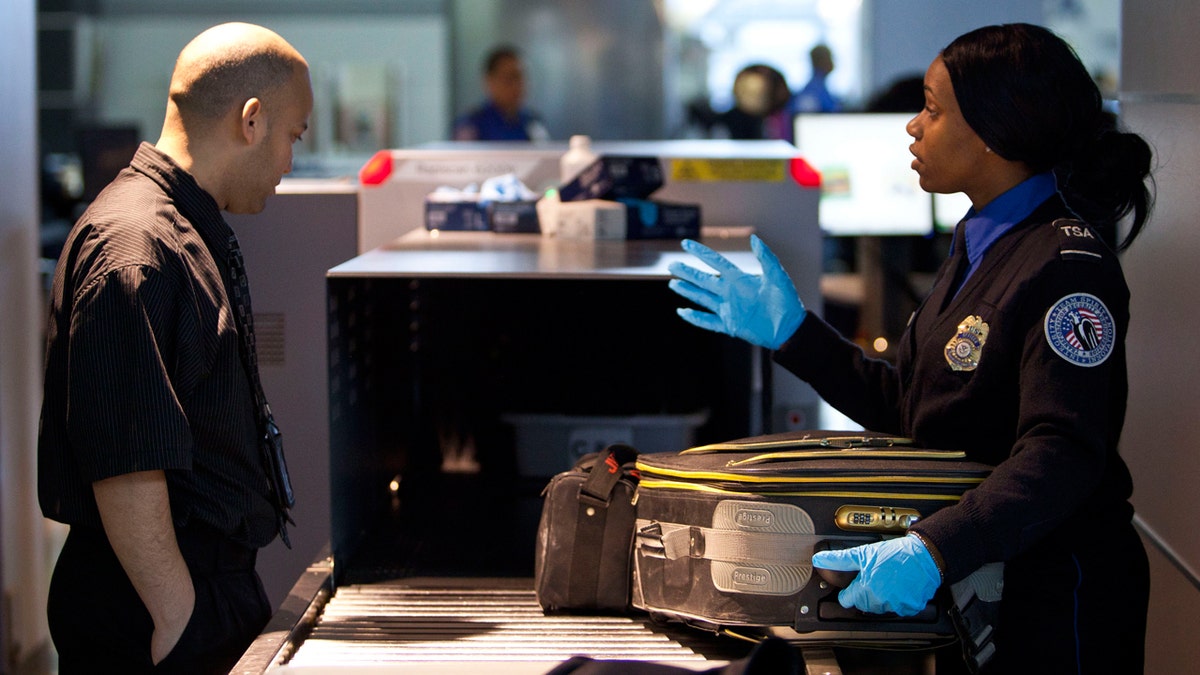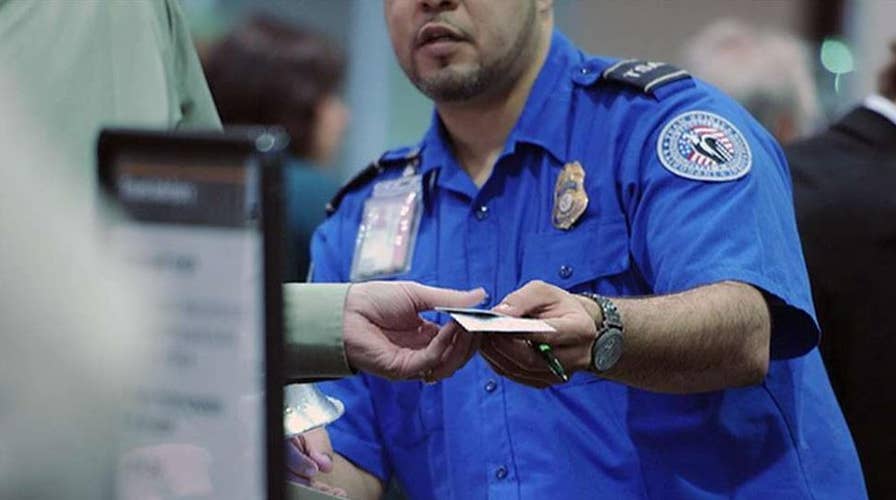TSA's Quiet Skies surveillance program under scrutiny
TSA reportedly tracking U.S. citizens not suspected of any crime to foil terror plots; Laura Ingle reports on the program.
Federal air marshals have secretly monitored a small number of U.S. passengers who raised red flags under a program called “Quiet Skies,” according to a recent report.
The Boston Globe on Sunday first reported on the program, which started in 2010. There are reportedly a number of factors that could raise suspicions for the agents, including travel histories and in-flight behavior —which could include activities such as using the bathroom for an unusual amount of time or changing clothes during a flight, The Washington Post reported.
When a person is placed on the list, a team of air marshals is placed on the person’s next flight, according to the Globe, and the team receives a list of personal information about the target. Targets are not told when they are placed on the Quiet Skies list.
A spokesman for the Transportation Security Administration downplayed the program, and likened it to tactics employed by “the cop on the corner who is placed there because there is an increased possibility that something might happen,” the Post reported.
In a statement to Fox News on Monday, the TSA said passengers were not singled out by race or religion. The agency did not go into specific details about the program, but said it did not follow flagged passengers around airports. It said the program was necessary to keep the skies safe.
“In the world of law enforcement, this program’s core design is no different than putting a police officer on a beat where intelligence and other information presents the need for watch and deterrence,” the TSA said in a statement.

There are reportedly a number of factors that could raise suspicions for the agents, including travel histories and in-flight behavior —which could include activities such as using the bathroom for an unusual amount of time or changing clothes during a flight, The Washington Post reported. (Reuters)
The federal agency said it examines travel patterns “through a system of checks and balances.”
“[It] effectively adds an additional line of defense to aviation security,” the statement said.
It was not clear if there were any arrests as a result of the program.
But the program has come under fire, including from people within the agency, who told the Globe it diverts resources from legitimate threats. The program, critics said, was a waste of time and money.
At least one air marshal reportedly filed a complaint with the Department of Homeland Security Inspector General’s Office about the program.
“The American public would be better served if these [air marshals] were instead assigned to airport screening and check-in areas so that active shooter events can be swiftly ended, and violations of federal crimes can be properly and consistently addressed.” John Casaretti, president of the Air Marshal Association, told the Globe in a statement.
Critics also said the program raises a host of civil liberties and profiling concerns.
“If this was about foreign citizens, the government would have considerable power. But if it’s U.S. citizens — U.S. citizens don’t lose their rights simply because they are in an airplane at 30,000 feet,” George Washington University law professor Jonathan Turley. “There may be indeed constitutional issues here depending on how restrictive or intrusive these measures are.”













































